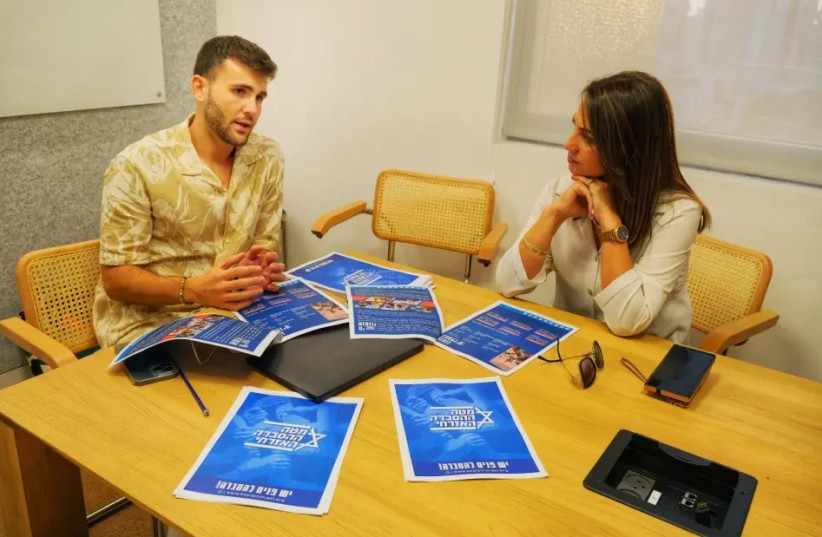Over the past month, the 12th floor of Tel Aviv's WeWork offices has transformed into a hub for the Civil Public Diplomacy Headquarters, boasting over 20,000 ambassadors worldwide. This headquarters, established within 48 hours after the beginning of the war, now sees around 2,000 volunteers working tirelessly across various information-related roles.
"When I woke up on that horrifying Saturday morning, I immediately started sharing posts on my social media platforms and received questions from friends seeking more information," says Eliav Batito, media person and founder of the Civil Public Diplomacy Headquarters.
"I realized that there was no official body in Israel coordinating our advocacy efforts and effectively conveying the needed messages at this critical time,” he added. “In less than ten hours, thousands of citizens joined this important endeavor."
The movement quickly gained momentum, with volunteers eager to contribute to the initiative. It became evident that there was a serious lack of informational materials, particularly a centralized database for easy access.
Today, with a well-oiled machine, the headquarters produces content distributed in over 45 languages, with this number continually expanding.

Running the advocacy system are some 250 creative professionals, 200 graphic artists, 150 video editors, 700 translators, 100 researchers and production personnel, 50 psychologists and social workers, along with numerous technology experts. Everything is working on a purely voluntary basis.
The pro-Israel content generated by the civil information headquarters spreads like wildfire on social networks, reaching millions of online users worldwide.
In addition to creating original content, the headquarters manages Israel's largest informational content database, which is accessible to anyone seeking relevant material. The content is categorized by language, platform type, topic, viewing classification, and recommended age groups.
Thus, Israeli citizens no longer have to scour Hamas Telegram groups for information; the headquarters takes care of curating professional and high-quality content and distributing it beyond Israel's borders.
The advocacy headquarters also undertakes projects that support the families of victims and document heroic stories through in-depth interviews.
This involves filming days, an array of staff members, interpreters, and psychologists who provide emotional support to both the families and the headquarters' volunteers, who are exposed to distressing content as part of their duties.
The volunteers understand the critical role information plays in winning the war and, thus, operate like a war room, working tirelessly all day long.
"Advocacy today is not what it used to be,” Batito said. “We strive to bring the headquarters' work into the 21st century through technological collaborations. We utilize artificial intelligence tools and harness the voluntary contributions of Israeli start-ups to optimize and strengthen Israel's outreach activities."
Strategic partnerships
Since its establishment a month ago, the headquarters has formed strategic partnerships with key entities in Israeli society. These collaborations include raising awareness about the rights of abducted women in partnership with NAMA and developing informational content for youth in collaboration with the National Student Council. In the political sphere, the headquarters has successfully created a broad coalition and organized tours and meetings for senior government officials, including Diaspora Minister Amichai Shikli, Minister Yifat Shasha-Biton, Labor Party Leader Merav Michaeli, Mayor of Tel Aviv Ron Huldai, and more.
"Our duty is to ensure that this incredible organization continues its operations even after the war,” Batito concluded. “What we have achieved here is nothing short of a miracle. At no other point in history could such a body be established without a budget or resources. The spirit of Israeli volunteerism demonstrates our unique commitment, and together, we will emerge victorious."
